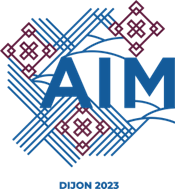Thematics, GTAIM & TRACKS > TRACK 2023: Responsible consumption, digital marketing & ISTRACK 2023: Responsible consumption, digital marketing & IS
Today's digital context disrupts the consumer's relationship with all stakeholders around him/her (e.g. other consumers, brands, public authorities, institutions, media, ...). The consumer can take advantage of this context to gain knowledge, skills and capacity to influence (Fayn et al., 2019), making the digital and informational environment a springboard for better well-being (simplification of daily life, reduction of waste...) and more responsible consumption (choice of more virtuous brands, discovery of more responsible products...) Through co-creation via digital media, this context can also give consumers the status of subjects in their own right with regard to brands, who have their own resources that they are able to implement and combine with those of the company (Vargo and Lusch, 2008). This logic based on co-creation turns marketing upside down, as it is no longer understood solely in terms of a unilateral relationship with the consumer, but in terms of a reciprocal construction relationship with him. Finally, this environment can also be a space of resistance in which the consumer demands, or even imposes, more responsible consumption. Although acts of resistance by consumers have existed for a long time, the Internet and social networks have exacerbated them and given them new forms: on the one hand, they constitute a favourable terrain for arousing and amplifying resistance and, on the other hand, they can play a facilitating role in response strategies developed by consumers in a more viral (bad buzz) and collective manner (Chalamon et al., 2012). However, other actors can also rely on this context in a way that can be unfavourable to the consumer. More specifically, the company benefits from this same environment to better understand consumer preferences, decision patterns and connections (Labrecque et al., 2013). It can thus weaken its power, or even manipulate it (e.g. excessive/unwitting exploitation of big data...). It can also interfere too much in his life, for example via geolocation (Rodrigues Goncalves et al., 2014) or connected objects (Chouk and Mani, 2019). Finally, like Gossen et al. (2019), it is legitimate to question the digital environment and tools of today, but also of tomorrow. Are they an opportunity or a threat to promote more responsible consumption and consumer welfare? To feed the reflection on the relationship between responsible consumption, digital marketing and IS, the proposed contributions could address the following topics in particular:
Responsible for the track Nathalie Guichard (nathalie.guichard@universite-paris-saclay.fr) Leïla Loussaïef (lloussaief@iscparis.com) |


